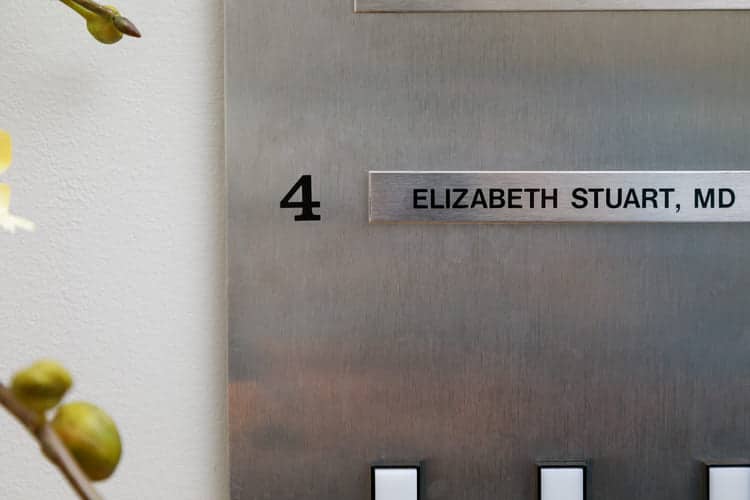Success shouldn’t cost you yourself
Therapy offers space to explore your inner world—and find your way forward.
When Work Takes Over, Life Starts to Feel Like an Afterthought
You push yourself hard. You always have. But lately, it feels like too much—like no matter how much you accomplish, it’s never enough. The exhaustion, the pressure, the endless demands—when does it stop?
Maybe you tell yourself you should be able to handle it. That stress is just part of success. But deep down, something feels off. The fear of slowing down, the quiet sense that if you stop, everything might fall apart.
Therapy offers a space to step back from the relentless pressure, reconnect with what truly matters, and build a life that feels meaningful, sustainable, and yours.
Finding Balance in a World That Never Slows Down
Imagine being able to step away from work without guilt—to pursue success without it coming at the expense of your well-being. What if you could still be driven and accomplished without feeling like you’re running on empty?
Therapy helps you untangle the deeper emotional forces keeping you stuck in overwork—so that balance becomes something you can actually feel, not just chase. Slowing down doesn’t mean falling behind. It means moving through life with greater ease, intention, and a sense of control that comes from within—not from pressure, guilt, or fear.
Therapy is a Space to Explore, Reflect, and Grow
Hi, I’m Dr. Elizabeth Stuart—you can call me Elizabeth. I’m a psychoanalyst and psychiatrist, based in Oakland, offering insightful, depth-oriented therapy for those struggling with overwork, burnout, and the emotional toll of high expectations.
I work with people who feel:
If any of this resonates, let’s talk. Therapy can help you explore the emotional forces driving your relationship with work—and what balance might look like for you.


You Are More Than What You Achieve
Work has always been more than just work—it’s where you feel competent, valued, and needed. Maybe it’s how you’ve measured your worth for as long as you remember.
Slowing down might bring up uncomfortable questions:
- Who am I if I’m not achieving?
- If I stop, will I still be valued?
For so long, productivity has been a way to hold everything together—to manage expectations, to feel like you’re keeping up. But at what cost?
In therapy, we explore these patterns—not to take work away from you, but to help you understand its hold so that you can engage with it on your own terms.
Call for an initial consultation or get started today
Or reach out with any questions—I’m happy to talk.
Finding Stability Without Always Pushing
Maybe it’s not just about achievement—maybe it’s about survival. The belief that if you stop pushing, things could fall apart. That security isn’t guaranteed, and that you can’t afford to let your guard down.
For many, work isn’t just a personal choice—it’s a necessity. A paycheck, stability, the thing that ensures everything stays okay. But even when things are objectively stable, the feeling of urgency doesn’t always fade.
In therapy, we explore what’s beneath this—whether it’s past instability, internalized fear, or a learned sense that survival is always at stake. Understanding these forces can help loosen their grip, allowing you to make choices from a place of clarity, rather than fear.
If work feels like the thing holding everything together, you don’t have to carry that fear alone. Therapy can help.


How Can I Support You?
I know how exhausting it is to always be pushing forward, never feeling like you’ve done enough.
In therapy, I offer more than just insight—I offer a space where you can feel seen beyond what you produce or achieve. Together, we’ll explore where these patterns come from, not just to understand them, but to loosen their hold. And because the need to strive and overextend doesn’t just live in your mind but in your body, in your relationships, even in our work together, we’ll notice what unfolds between us—creating the possibility of moving through the world with more ease, self-trust, and permission to simply be.
You Don’t Have to Keep Running on Empty
What if there was another way? If any of this resonates with you, I’d love to hear from you.
Frequently Asked Questions
Work-life balance is often framed as a matter of time management, but in reality, it’s deeply personal. It reflects how we relate to work, rest, and fulfillment. Many of us have internalized messages that productivity defines our worth, making it difficult to step back. Therapy offers a space to explore these beliefs and consider what balance might look like on your own terms.
Therapy isn’t about prescribing quick fixes or efficiency hacks—it’s about understanding what keeps you stuck in patterns of overwork, guilt, or exhaustion. By exploring the emotional and relational forces shaping your relationship with work, therapy can help open up new ways of engaging with success, rest, and self-worth.
Feeling drained, anxious, or guilty when taking time for yourself. Struggling to disconnect from work, even in your free time. Noticing that relationships or personal interests have taken a backseat. A sense that no matter how much you accomplish, it’s never quite enough. These aren’t just signs of burnout—they may point to deeper emotional patterns that are worth exploring.
Yes, but not just by teaching coping strategies. Work-related stress is often tied to internalized expectations—about success, responsibility, and what it means to be “good enough.” Therapy offers a space to examine these pressures, where they come from, and whether they truly reflect what you want for yourself.
If work feels like it’s consuming your thoughts, shaping your self-worth, or preventing you from fully engaging in life outside of it, it may be helpful to reflect on why. Therapy can help uncover the emotional undercurrents driving these patterns—whether it’s perfectionism, fear of failure, or something else.
Yes—and that guilt is worth paying attention to. Often, it’s tied to deeply held beliefs about self-worth, responsibility, or proving ourselves. Therapy helps unpack where those beliefs come from and whether they still serve you, allowing you to approach work and rest with a greater sense of freedom.
